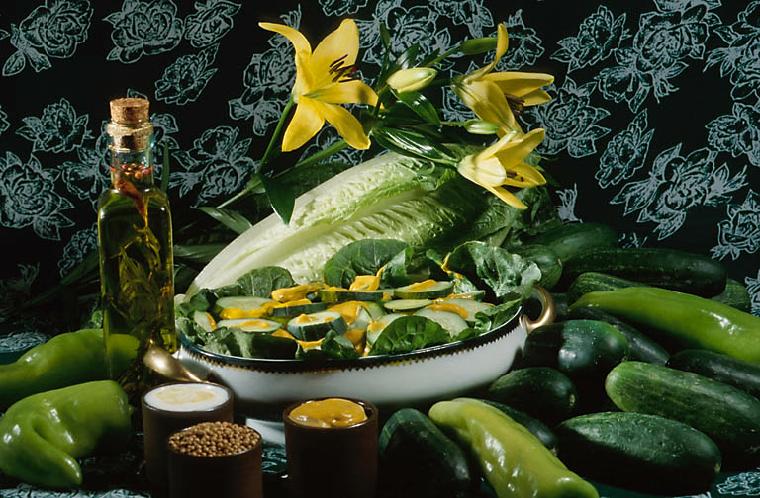One of my favorite new recipes is Quinoa with mediteranean feta . . . I've honestly got to say it's like eating candy. So very yummy.
Studies show that eating a diet high in whole grains can help lower your risk of heart disease, diabetes, and cancer. To try something different from whole wheat, oats, and brown rice, consider quinoa (“KEEN-wah”). Quinoa is a protein-rich whole grain that was a staple of ancient Andean civilizations of South America. Quinoa is good served hot or at room temperature. It works well in pilafs, stews, soups, salads, and as a morning cereal drizzled with maple syrup. It is important to rinse quinoa before cooking because the grain is covered with a coating of saponin, a bitter, soap-like substance that acts as a natural insect repellant.
Source: Ever Green, Ever Healthy Features, American Institute for Cancer Research, www.aicr.org.
Tuesday, July 20, 2010
Monday, July 19, 2010
B vitamins!
B vitamins, especially B12, folate, and B6 (pyridoxine) are crucial for normal brain function. A Swedish study tested the memories of 167 older people free of dementia or depression but who were at greater risk for Alzheimer's disease. On the morning they tested memory they also drew blood and tested for B vitamins. The people who had normal levels of vitamin B12 did better on their memory tests than those with lower levels of B12. Folate also seemed to help memory but not as much as B12.
Getting adequate vitamin B12 may help the brain stay healthy and help you retain your memory as you get older. Milk is a good source of B12. Persons who don't eat dairy or meat may be low in B12 levels unless they are taking a supplement. As a person get older, B12 is not absorbed as well, so a lack of B12 is common even in non-vegetarians. The Institute of Medicine recommends persons over 50 get most of their B12 from fortified foods or a supplement because they are better absorbed. Be sure you get plenty of B12 daily. Good sources of folate include green leafy vegetables, legumes (especially lentils), oranges, and food yeast (add to tofu, soups, roasts).
Getting adequate vitamin B12 may help the brain stay healthy and help you retain your memory as you get older. Milk is a good source of B12. Persons who don't eat dairy or meat may be low in B12 levels unless they are taking a supplement. As a person get older, B12 is not absorbed as well, so a lack of B12 is common even in non-vegetarians. The Institute of Medicine recommends persons over 50 get most of their B12 from fortified foods or a supplement because they are better absorbed. Be sure you get plenty of B12 daily. Good sources of folate include green leafy vegetables, legumes (especially lentils), oranges, and food yeast (add to tofu, soups, roasts).
Thursday, July 15, 2010
Potassium . . . who knew?
American adults need to consume more foods rich in potassium—at least 4,700 milligrams a day to lower blood pressure, blunt the effects of salt, and reduce the risk of kidney stones and bone loss. But most Americans only get half that amount. A sampling of foods rich in potassium include serving sizes of spinach (840 mg), baked potato with the skin (800), sweet potato (700), white beans (600), yogurt (600), halibut (600), Brussels sprouts (500), orange juice (500), lima beans (475), bananas (470), and broccoli (460). Potassium supplements are not recommended and could be dangerous unless doctor recommended.
Subscribe to:
Comments (Atom)



